...that are well-worth seeing before leaving the Horsey area, where we'd been visiting the Grey Seals
All Saints' Church at Horsey
The tiny settlement of Horsey stands just outside the Norfolk Broads national park and feels quite different from that nearby watery world. The strong, low-angled sun and the tree-shadows made photographing the building very tricky, but I thought you'd like to see it anyway. It's a very traditional Norfolk church with its round tower and thatched roof and seems to date from around the eleventh or twelfth centuries.
Everything is as old-fashioned and rustic as one would hope, almost as if it has grown up from the rich Norfolk soil; a refuge from the modern world.
Sometimes old churches like this feel damp and gloomy, but with the bright sun coming in through the many clear-glass windows the interior had a warm and welcoming glow.
There are just a few stained glass windows which were added during the Victorian era, including this charming memorial to Catherine Ursula Rising, a local artist, pictured at her easel.
Horsey Wind Pump
The whole of the Norfolk Broads is studded with what appear to be windmills of varying ages and states of preservation: except that they are not mills at all but wind-driven pumps concerned with the drainage of this difficult land.
The wind-pump is not as ancient as you might imagine, dating from 1912. But it replaced a much older pump, the bottom few courses of brick are still in place. The flat, windswept land here and gales coming off the sea, meant that these structures were constantly being repaired or replaced. In fact the National Trust, who look after the structure, are still carrying out frequent renovation work, even though the pump is no longer in use, having been replaced by diesel power.
In less contagious times you can climb up to the top to enjoy the view and there's also a small café alongside for visitors.
St Mary's Church, East Somerton
Just two or three miles down the road from Horsey, hidden away among trees, is the magnificent romantic ruin of St Mary's church.
It must once have been a very large church but has been ruinous since the seventeenth century, by which time the parish had been subsumed into the larger parish of Winterton. This huge building then became a private chapel to the inhabitants of nearby Burnley Hall, who presumably could not afford the upkeep of such an enormous building.
Having feasted our eyes on the ivy-clad ruin we climbed into my brother's car to travel the ninety miles or so back home.
Take care.

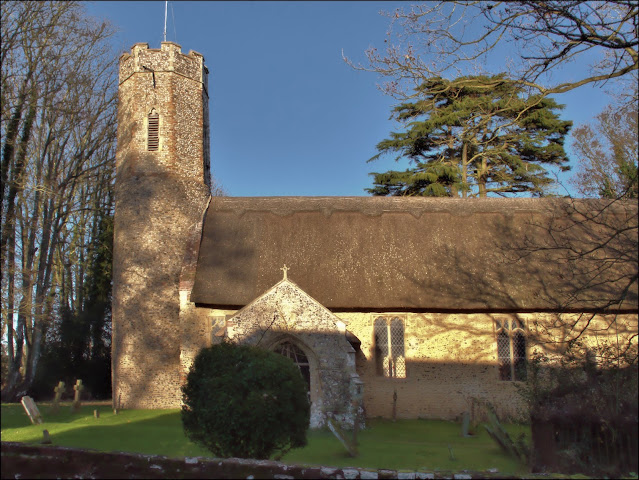


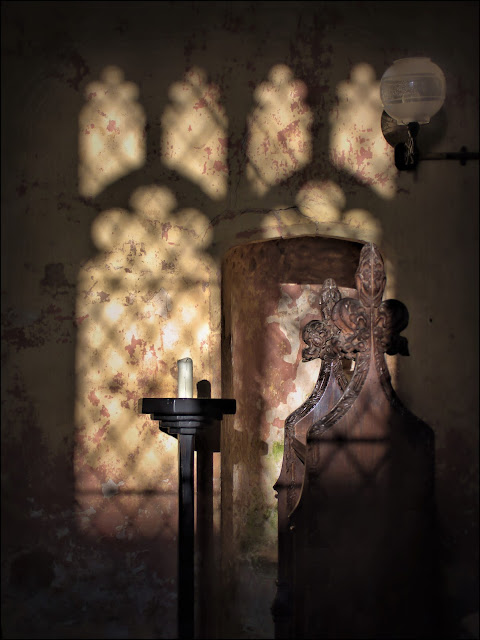
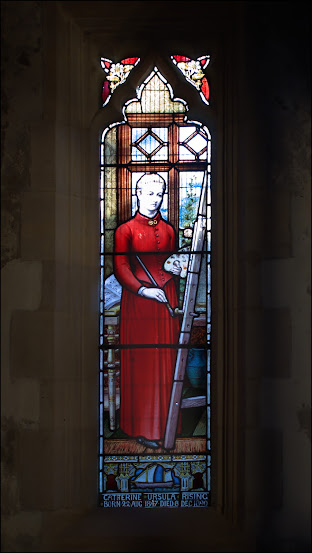
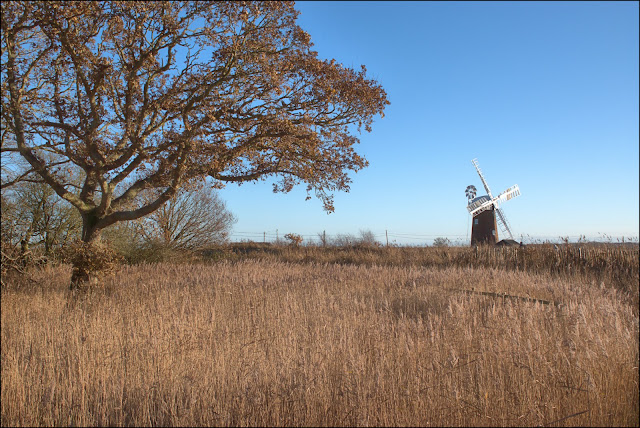

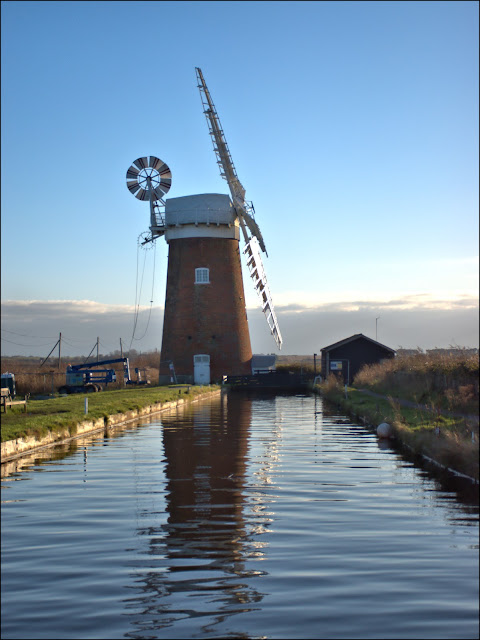
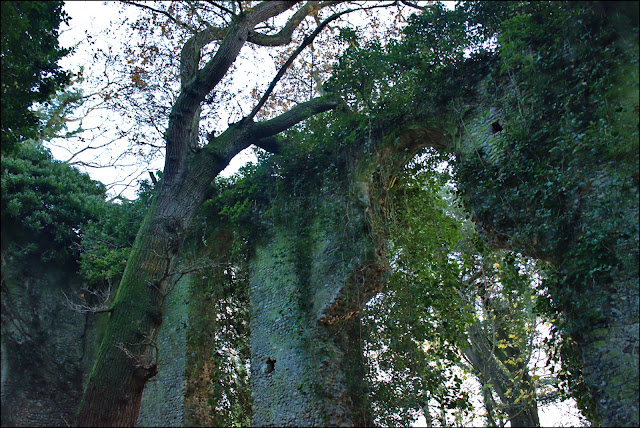
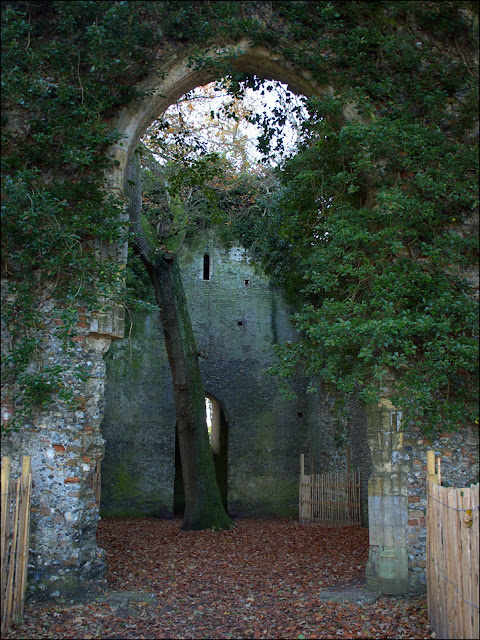
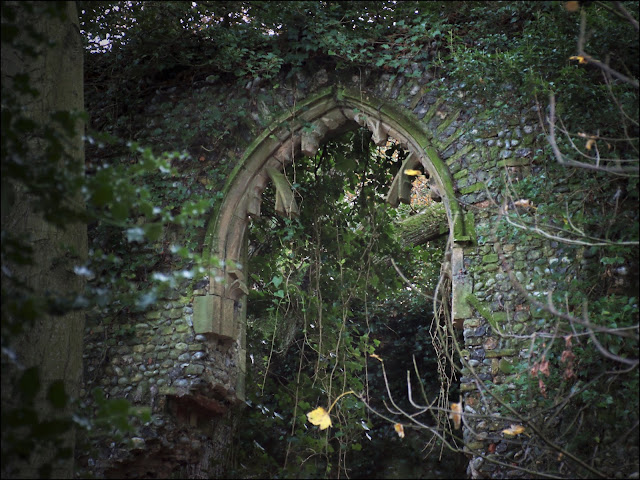
Thank you.
ReplyDeleteThat reflection in particular makes a stunning photo.
Hi John - you're taking us to many really excellent places to visit - isn't this delightful, so much history ... thanks for the photos and notes - amazing to see - cheers and have a great seasonal week ahead. And yes - that reflective photo is brilliant - Hilary
ReplyDeleteI know The Broads and Norfolk well but have never come across Horsey Church John - it is a beauty. Happy Christmas
ReplyDeleteIt's a really interesting area, both for the historian and the nature lover. You have captured the feel of it well for those of us unable to experience it in person.
ReplyDeleteInteresting details and great pictures as usual, John. It was worth the trip! Thanks for sharing!
ReplyDeleteThat visit was well worth the drive. Love the reflection and the windmill photos. The thatched roof church is an unusual sight to me and its interior looks like a glimpse back in time. Great post.
ReplyDeleteLovely photos of unusual scenes and buildings. I was most taken by the sunny thatched roof church. Afraid the dark Mary's ruins didn't impress me as much. And that's a sweet old windmill!
ReplyDeletebeautiful escapes with your images and stories
ReplyDeleteAll Saints is an interesting church - I love churches with a rood screen - and the thatched roof is beautiful both outside and in.
ReplyDeleteSad that St.Mary's was allowed to become a ruin, it was lovely in its day I'm sure, and a church that size must have had a large congregation long, long ago. Are the ruins always open to the public - and are they safe to visit?
Great photos John - hope this week goes well for you, and your holidays are merry and bright.
Mary -
Large churches are not always reliable indicators of a large congregation; quite often wealthy benefactors built churches far in excess of the needs of the local population. St Mary's stands on private land, but is open to the public; the wicket fencing visible in the second last photo keeps visitors away from the more dangerous parts of the ruin.
DeleteEnjoyed the visit to the church. It's a wonder the thatch roof had never been replaced. Take care there with infection rate soaring.
ReplyDeleteThe thatched roof will have been replaced every thirty years or so; that's about the limit of their lifetime.
DeleteThat is such a beautiful church inside and out. I like that it has been left rustic inside.
ReplyDeleteThe church is beautiful, glad it still survives today as a ruin. Great reflection capture.
ReplyDeleteYou find the most interesting things! Love that old windmill.
ReplyDeleteThree lovely and very different places to admire, the inside of the thatched church looks wonderful in the sunlight. I love the mill refleced in the puddle:)
ReplyDeleteVery interesting area! The ruins of St Mary's church look mysterious.
ReplyDeleteTruly wonderful old church full of warmth and light. I also like that ivy clad ruin which must have so many stories to tell.
ReplyDeleteThe ruins are quite photogenic.
ReplyDeleteI love the interiors of the old churches you find!
ReplyDeleteThat is one old church and ruin. Sorry haven't been around lately. Busy with memoirs and scanning photos.
ReplyDeleteYou have so much history there. I love the photos with the reflections. Enjoy your day, hugs, Edna B.
ReplyDeleteI love that first church. It does feel very organic and earth, even just from a photo. It much be very peaceful and warm in person.
ReplyDelete